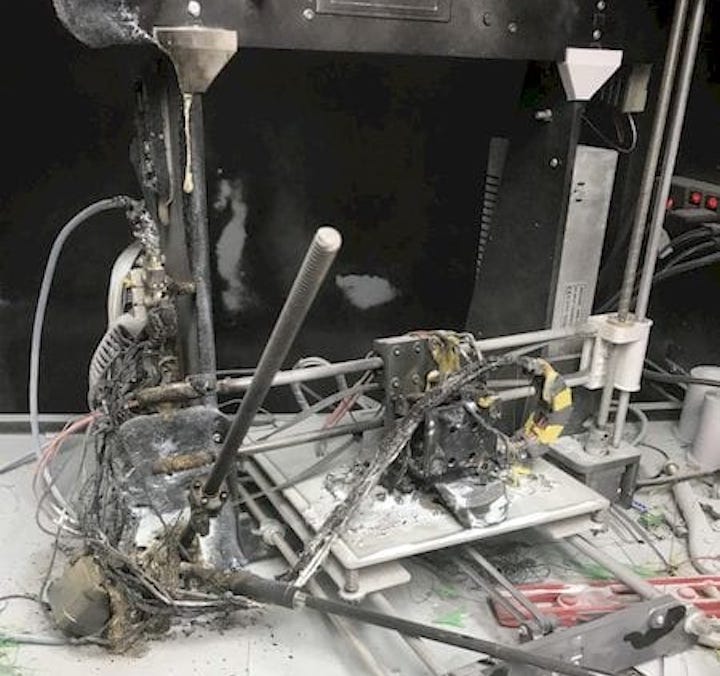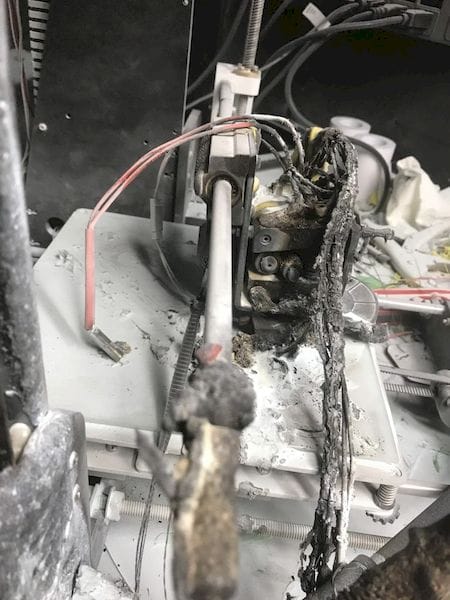
Desktop 3D printers are definitely not the safest machine you can have.
A report by John of This Smart House describes his incredibly dangerous experience with an out-of-control 3D printer. He was very lucky to have escaped without loss of life or significant personal damage.
What happened? Evidently his desktop 3D printer, an ANET A8, caught fire suddenly. Not just getting warm or smoking, as some 3D printer mishaps do, but blasting into full flames requiring immediate application from the fortunately nearby fire extinguisher.
As you can see from the image at top, the A8 was destroyed utterly, and you can imagine the intensity of the flames that could cause that level of damage. John describes it as “life threatening”.
Fortunately the incident occurred when he was present while the printer was in operation. Due to his proximity he was able to instantly deploy the fire extinguisher and take appropriate actions. Nevertheless the printer was lost, but his home was saved.
John determined the cause of the fire, and it was not quite what you might expect. Typically fires occur when the heat sensor fails and the controller board blindly keeps trying to heat up the nozzle way beyond its normal limits, or short circuits in the controller or electrical system. But not in this case.
You can read John’s extensive analysis, but it turns out that the hot end somehow came loose and fell down and came to rest on an add-on ABS plastic fan duct that John had added to increase the cooling efficiency of the unit. The ABS eventually ignited, causing a cascade of fires that became a conflagration.

There are so many lessons here, and John lists, but to me the most important are three:
Inexpensive machines are made from inexpensive components and designs not optimized for safety. They often do not have safety certifications. Be aware of what you are buying.
Inexpensive machines are usually deficient in some way, and DIY folks very often attempt to fill the gap with modifications to make things work better. They may work better, but they may compromise safety even more. Design for safety is a complex undertaking that many people don’t sufficiently understand. I certainly don’t.
Machine safety is a discipline often ignored; machines should be placed in safe areas, away from flammable materials, with fire extinguishers handy and especially a smoke detector above. And of course, don’t leave such machines run unattended.
This experience ended up “good”, or as good as one could expect, but it offers some lessons for everyone, whether you have a tiny 3D printer under your bed or if you run massive machines in a large workshop.
Safety First.
Via This Small House

